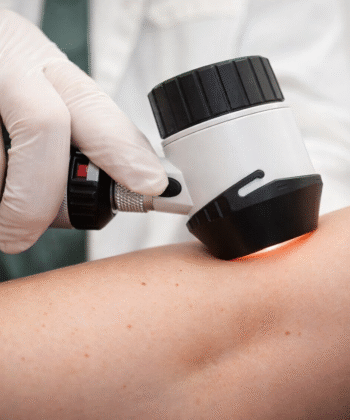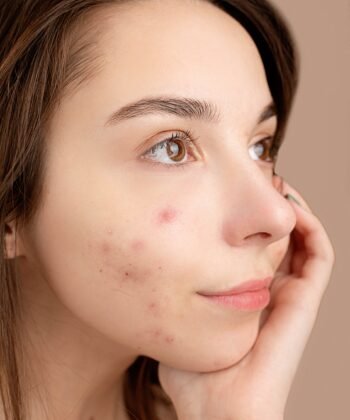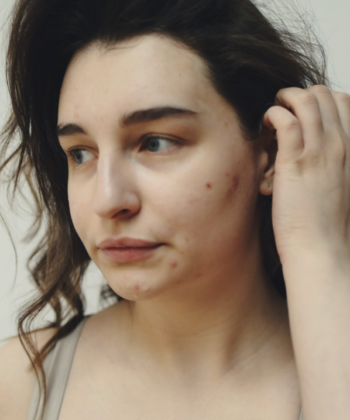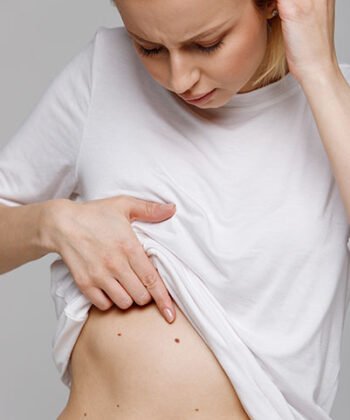Children's Dermatology in London
If your child is affected by a skin condition, The Dermatology Clinic team is here to help.
All consultants within our clinic are trained in paediatric dermatology and offer a comprehensive range of skincare services for babies and children.

Skin conditions in children we treat
An accurate diagnosis and treatment plan from one of our consultants can massively improve your child’s life and provide relief for the whole family. Conditions we regularly treat include:
We can help children who have not responded to treatment provided by their GP. Our team will carry out extensive analysis and apply new, approved medication and therapies as appropriate.
Skin treatments for children
The Dermatology Clinic provides a broad service that caters for all dermatological complaints, including treatment of skin infections and diseases together with advice on allergies. This allows us to find the best solution for your child’s condition and lifestyle. In an initial consultation, we will invite both you and your child to discuss our many treatment options and help you make an informed decision.
Depending on your child’s condition, we might prescribe topical creams, medication or therapies, or even a combination of all three. One of our professional consultants will take time to demonstrate how to apply treatments at home and can offer advice on skincare for the future.
Children’s dermatology with The Dermatology Clinic London
All our consultants recognise that skin conditions can cause a great deal of distress for children as well as those close to them. Their main objective in this case is to treat your child and help them feel more confident. All conditions carry emotional aspects and our team help children to understand their condition and see it in a positive light. Through evidence-based proven therapies, we strive to improve not just your child’s skin, but their overall wellbeing too.
Book an appointment
There’s no need for your child to suffer as a result of a skin condition. Call 020 3733 3227 today to book an appointment and let The Dermatology Clinic do the rest.
Learn more about skin conditions

The Importance of Checking Your Moles
Protect yourself from melanoma with regular self-assessment. Learn the signs to look out for and when to see a dermatologist. Read more for essential insights.

BCC vs SCC
A skin cancer diagnosis raises immediate questions. If you've been diagnosed with basal cell carcinoma (BCC) or squamous cell carcinoma (SCC), you need clear information about your condition and treatment options.

Melanoma and Ultraviolet Light: What’s the Link?
According to Cancer Research UK, around 85% of melanomas in the UK are caused by too much ultraviolet radiation. The number of people being diagnosed with this type of cancer has increased and is now the 5th most common cancer in the UK.

The Truth About Acne
Acne is a debilitating disease that affects over 18 million people in the UK. A lot of people say it’s a teenage issue that you can grow out of, but it affects many people right through to their adult life and can completely take over people’s lives.

Pregnancy Acne: What Are the Causes?
Pregnancy acne, stemming from hormonal shifts, affects up to 43% of expectant mothers, often causing breakouts and discomfort. Learn about the causes, prevention tips, and expert solutions at The Dermatology Clinic London.

Acne in Teens and Young Adolescents
One of the reasons teenage acne flares is as a result of hormonal changes in the body that cause the glands under the skin to produce excess sebum. It is these hormones that play a major role in influencing how the sebaceous glands function.

Skin Allergies – Why they Happen and How to Take Care of Them
Allergies are the most common chronic disorder in the United Kingdom; it is estimated that around a quarter of brits will be affected by some kind of allergy during their lives, a number that is expected to increase exponentially going forward.

Why Does My Mole Itch?
Itching or pruritus is often a sign of dryness or irritation of the skin’s surface. As a result, our skin’s nerve endings, also known as pruriceptors, are stimulated.

The Impact of Diet on Acne: What You Eat Matters
Diet plays a critical factor in a person’s overall health and well-being. People with a healthy balanced diet tend to live longer and have a lower risk of developing serious health problems such as cardiovascular disease and type 2 diabetes.
What our patients say…
Dr Glass put me on a course of medication which was successful in treating this condition. I have now been happily discharged 🙂
Throughout my treatment, I found Dr Glass to be extremely conscientious, caring and thorough. He fully explained all the available treatment options to me and possible side effects. I felt I was properly informed.
He also explained to me that skin is very unpredictable and if I have a predisposition to skin allergies, then flare-ups could recur in the future. If this happens, I would have no hesitation in consulting with Dr Glass again, if need be. I would also have no hesitation in recommending him to others.
His knowledge, expertise and attention to detail, is not only reassuring but enables you to build trust and confidence going forward in whatever treatment path is required.
I have recommend him to family
and friends for diagnosis and treatment, as I believe Daniel is the leading consultant in his field for Northwest London.
When I saw Dr Glass in 2017, he diagnosed and treated my skin issue very swiftly. Within weeks I was looking well but mentally that boosted my confidence too.
I needed to see him again and I was not going anywhere else, as he was the right person to treat my skin condition again. Dr Glass once again diagnosed and treated my skin condition on a different issue very quickly and within 6-7 weeks, my skin feels new.
Thank you once again Dr Glass; I will not hesitate to recommend you to anyone seeking your services as I know they will be in the best care.




